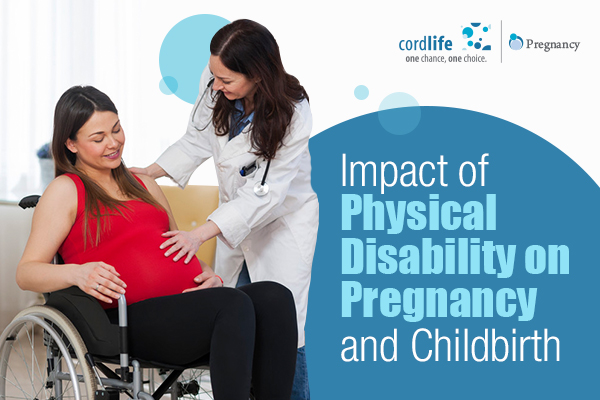Table of Contents
Your physical disability may not interfere with your chances of getting pregnant. Many women with physical disabilities can discourage by their family, friends, and even doctors from having a child. Many people feel that managing physical disability during pregnancy would be difficult for them. Some even fear that disability may get genetically transferred to the child. Other concerns include the mother’s capability to take care of the baby.
However, many disabled women feel otherwise, and their desire to have a baby is no less compared to someone without a disability. The good news is disability usually doesn’t affect a woman’s fertility unless her disability is specifically related to her reproductive organs.
Physical disability should not be a reason for not having a baby. Accept the fact that it will be challenging and proceed if you have faith in yourself. You can be both disabled and pregnant, and it is completely okay. Here are certain key points to remember about physical disabilities during pregnancy.
Accessibility of Maternity Care For Physical Disabled Women
About 15% of the world’s total population suffers from some kind of disability. Almost 10% of women suffering from physical disability are of childbearing age.
Physical disability in pregnancy can be challenging in terms of limited access to information, facilities that know about their disability, and basic tools.
Recently, World Health Organization (WHO) also highlighted the need for research, advocacy, and dialogue regarding physical disability during pregnancy. Pregnancy care needs to be more inclusive of women who are disabled and pregnant.
Environmental Accessibility
A disabled woman who is in a wheelchair may find it difficult to reach a doctor’s office if there is no ramp to access the clinic. Commuting while pregnant can be a huge challenge and she may have to skip doctor’s appointments. At times, even when the doctor’s office is accessible there may not be tools that are adjustable to her condition. For example, even a simple thing like a weighing scale may become an issue. To make it more inclusive, every doctor’s office should have tools appropriate for disabled patients.
Finding a Team of Doctors
A disabled and pregnant woman will need a team of doctors to take care of her during pregnancy. Healthcare providers are not often trained on how to take special care of a woman with a physical disability during pregnancy. The usual obstetrics approach may not work for a disabled woman. If she has a spinal injury, she may need a spine specialist with her throughout the pregnancy. Similarly, specific conditions will require a specific team of doctors. If you feel disabled and pregnant, create a team of healthcare providers to take care of you throughout pregnancy and childbirth.
High-risk Pregnancy
Your pregnancy will be automatically termed as a high-risk pregnancy. Do not worry as this doesn’t mean that you will have complications or your baby will have birth defects. In medical terms, a high-risk pregnancy means something that needs extra care. As you will potentially have difficulty exercising during pregnancy, you are at a higher risk of developing preeclampsia and gestational diabetes and having a caesarian delivery.
Many disabled women are capable of giving birth vaginally but your doctor may tell you in advance that you are more likely to have a C-section. Disabled and pregnant women are also at a higher risk of developing urinary tract infections (UTI), kidney infections, bladder infections, and getting pneumonia.
Planned Caesarean
In most cases, vaginal delivery is possible. However, getting to the hospital after your water breaks may become a challenge due to your mobility issues. In that case, your doctor may advise you of a planned C-section delivery. If you suffer from any spinal cord injury then you may not be able to feel uterine contractions. Being in a wheelchair can also limit your understanding of the water breaking. Therefore, to avoid all these complications your doctor may ask you to get admitted to the hospital around your due date or may directly opt for planned C-section delivery.
Compared to a mother without a physical disability, a differently-abled mother will face many more challenges in raising her baby. However, that should not stop her from having children.
